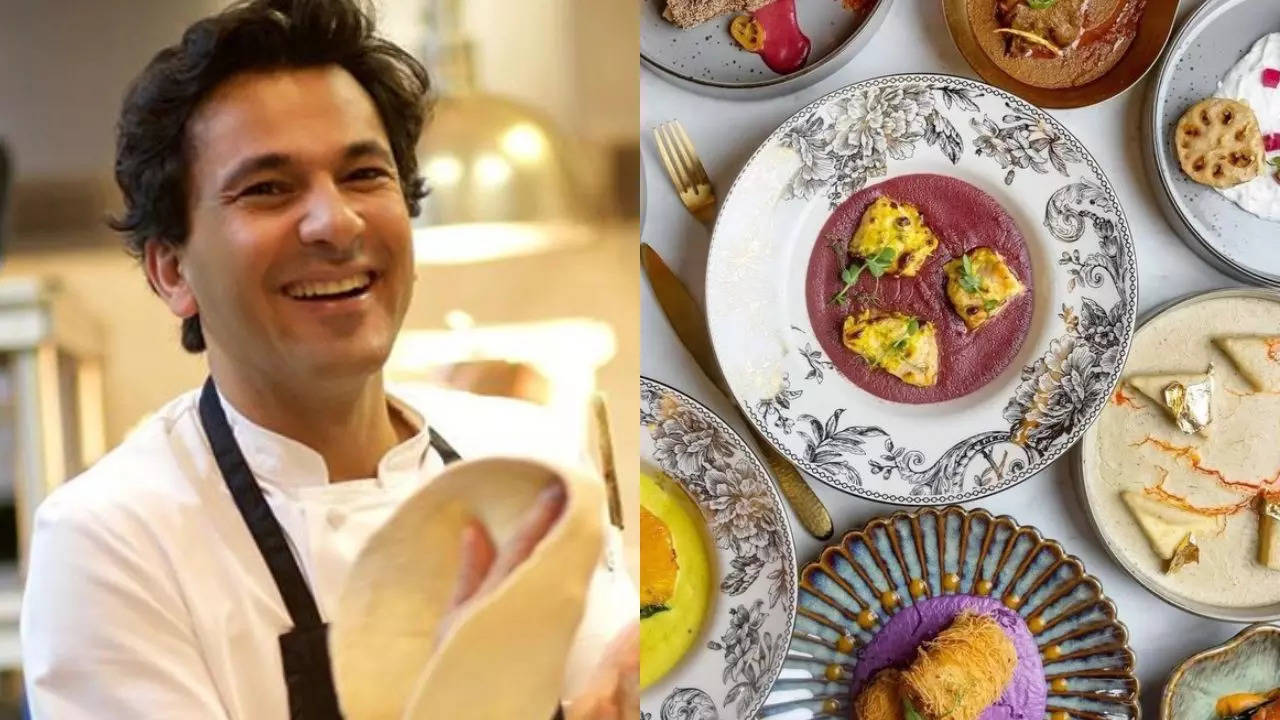
Chef Vikas Khanna may have started out as an Amritsari boy with a love for food, but over the years his culinary skills have made him one of the most respected chefs in Indian cuisine across the world. In interviews that have recently gone viral, he’s been giving people more insight into what has shaped his career, especially his insights into his experiences as an Indian chef who works predominately in the West.
Indian food has had an uphill battle in terms of acceptance and only recently, the true scope of the subcontinent's varied cuisines is finding a place in fine dining, but Chef Khanna feels like that comes with some problems of its own. Recently, he’s voiced his opinions about the fact that Indian food often gets whitewashed, toned down or otherwise adapted to better suit the Western palate. In the interview with Know Time, he says that it’s people who ‘cook Indian food unapologetically’, that truly inspire him.
He also believes that despite the complexities of the cuisine, there is a market economy for this cooking, especially among the younger generation in the US. “There is an entire generation who has grown up now and wants to see what their parents were eating or what their grandparents were eating. And they’re bringing a whole different equation to the table.” He adds that there was a time when the marker of success for an Indian restaurant was how many white people were dining there, but that’s pivoted because first-generation Indian Americans are now driving the success at places like his restaurant, Bungalow which is counted among the hardest reservations to get in New York City.
Khanna also mentions that the marker for success in the food world is a Michelin star, but it's these prospectors and New York Times critics who need to be taught to understand the complexities of other cuisines. “If 1.5 billion people eat like this, then how can this be wrong. If you’re Indian, you need to be loud about it and feel proud that this is what has been gifted to you,” he adds.
View this post on Instagram
A post shared by Know Time (@knowtimetofly)
Earlier this month an interview from 2020 with the BBC went viral as he shed light on the inherent racism that follows Indian chefs around. In reference to how Chef Khanna provided free meals for the needy during the COVID pandemic, the interviewer acknowledged Chef Khanna’s success cooking alongside Chef Gordon Ramsay and for the Obama’s, but then suggested that his background in Amritsar is what gave him a better understanding of hunger, and insinuating that’s why he chose to give away free meals.
Chef Khanna quickly set the record straight, explaining that his experience back home in Amritsar is that nobody goes hungry. He added that the Golden Temple fed thousands a day and could potentially feed the whole city, so his experience with hunger came not from India, but from New York. He revealed he often spent nights sleeping rough in places like Grand Central Station, and in the post 9/11 economy, it was extremely difficult for brown people to find jobs in kitchens.
He further added in a social media post in September, “Every nation has its greatness & faults.
India is so so multidimensional & multicultural. One of the fastest-growing economies. Our cuisine is valued as our greatest soft power, our family structure, spiritual power & wisdom, literature, science, research, technology, music, culture has defined its space in the World. Our Chefs are ruling the global stages & our role in the World of science & technology is symbolic to who we are & our educational systems. But somehow this is the only question significant to some…”
Chef Vikas Khanna’s outspoken views have gained approval across the board from Indian chefs and chefs across the board who have struggled to showcase their native cuisines in a world dominated by Euro-centric food habits and closeted racism.

